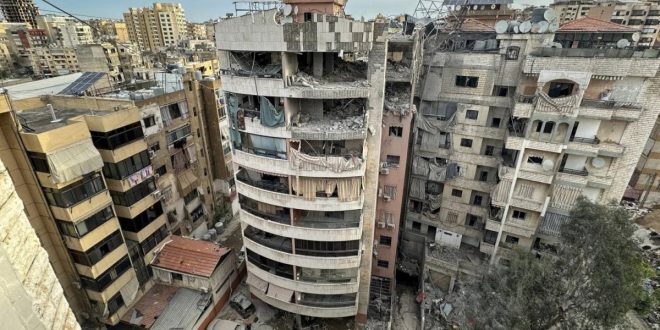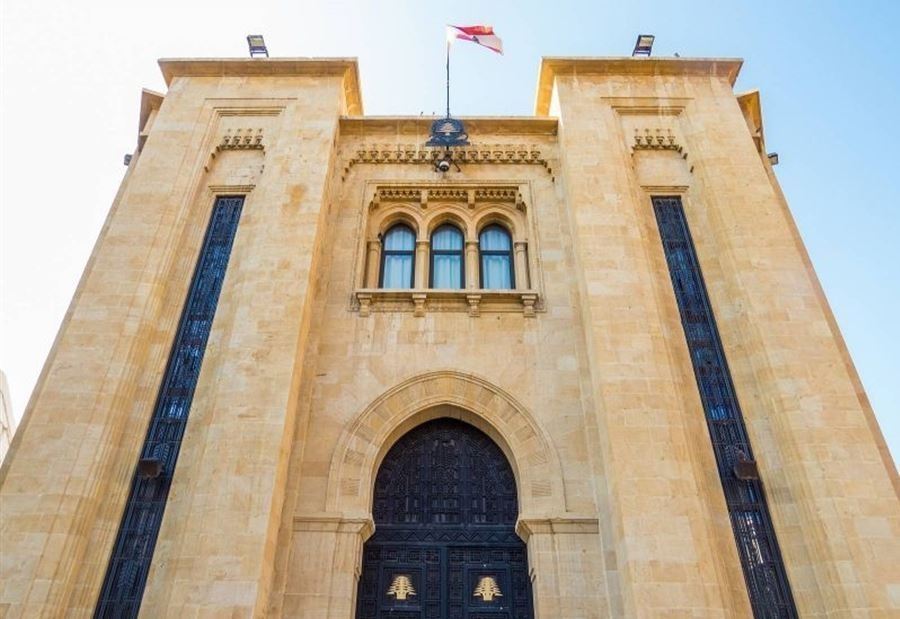إسرائيل ترسم “قواعد اللعبة” في لبنان وسوريا: التصعيد العسكري والتحديات الإقليمية
في تصعيد عسكري لافت يهدف إلى إعادة رسم “قواعد اللعبة” في المنطقة، عاودت إسرائيل قصف الضاحية الجنوبية لبيروت للمرة الثانية خلال أقل من أسبوع، في خطوة تثير تساؤلات حول نواياها في تحريك الملفات العسكرية في لبنان وسوريا.
وأعلن الجيش الإسرائيلي عن استهداف حسن بدير، المسؤول في الوحدة 3900 التابعة لحزب الله وفيلق القدس، مدعيًا أنه كان يشرف على تنظيم نشطاء من حركة حماس لتنفيذ “هجوم خطير ووشيك” ضد أهداف إسرائيلية. ووفقًا للبيان، فإن هذه الغارة جاءت ضمن سلسلة من الاعتداءات التي نفذتها إسرائيل على لبنان، رغم سريان اتفاق وقف إطلاق النار منذ نوفمبر الماضي.
الاعتداءات الإسرائيلية لم تتوقف منذ دخول وقف إطلاق النار حيز التنفيذ، حيث واصلت إسرائيل شن غارات على مناطق الجنوب والبقاع في لبنان، بزعم استهداف مواقع عسكرية لحزب الله. وقد اعتبرت هذه الغارات بمثابة محاولة لفرض قواعد اشتباك جديدة، بما يعكس رغبة إسرائيل في الحفاظ على حرية تنفيذ عمليات عسكرية متى شاءت.
وفي هذا السياق، قال الأكاديمي والخبير في الشؤون الإسرائيلية، الدكتور مهند مصطفى، إن استهداف الضاحية الجنوبية يأتي ضمن استراتيجية إسرائيلية تهدف إلى إظهار قدرتها على تنفيذ عمليات الاغتيال والتدمير في الوقت الذي تختاره، مشيرًا إلى أن الحرب مع حزب الله لم تنتهِ فعليًا مع توقيع الاتفاق. وأضاف أن إسرائيل ترى نفسها الطرف المنتصر، مما يمنحها، حسب اعتقادها، حرية تفسير الاتفاق بما يخدم مصالحها.
من جانبه، أشار الباحث الأول في مركز الجزيرة للدراسات، الدكتور لقاء مكي، إلى أن القصف الإسرائيلي للضاحية يحمل أبعادًا إستراتيجية تتجاوز البعد العسكري، حيث تسعى إسرائيل إلى فرض معادلات سياسية جديدة تؤكد هيمنتها الإقليمية دون أي مساءلة. وأضاف مكي أن الإدارة الأميركية تتماشى مع السياسات الإسرائيلية في لبنان، لكنها قد تفرض بعض القيود على تل أبيب في سوريا، نظراً لاختلاف المصالح الأميركية في المنطقة.
التحديات في سوريا وسيناريوهات المستقبل
فيما يتعلق بسوريا، أوضح الدكتور مصطفى أن إسرائيل تسعى إلى ضمان أمن حدودها، خصوصًا أن النظام السوري الجديد لا يزال غامضًا بالنسبة لإسرائيل، التي تخشى التحديات الأمنية التي قد تنشأ نتيجة أي تغييرات سياسية في دمشق. وأكد مصطفى أن “إسرائيل لا تريد دولة قوية في سوريا”، مما يشير إلى سياسة إسرائيلية تهدف إلى إبقاء سوريا ضعيفة ومقسمة.
أما الخبير العسكري العميد إلياس حنا، فقد أشار إلى أن إسرائيل قد خرقت اتفاق وقف إطلاق النار أكثر من 1500 مرة، مما أسفر عن استشهاد أكثر من 200 لبناني. كما أضاف أن هناك بندًا سريًا في الاتفاق يضمن لإسرائيل تفوقًا جويًا يسمح لها بالتدخل العسكري في حال شعرت بتهديد وشيك. وأكد العميد حنا أن حزب الله يواجه تحديات كبيرة، بما في ذلك فقدان الدعم الإقليمي والتمويل الإيراني، مما يضعف قدرته على الدخول في مواجهة مفتوحة مع إسرائيل.
في هذا السياق، أكد الدكتور مكي أن لبنان أمام تحدي رئيسي يتمثل في إقناع الولايات المتحدة بأن موقفه يصب في مصلحة الاستقرار الإقليمي، مشيرًا إلى أن أي مواجهة عسكرية مع إسرائيل لن تصب في مصلحة لبنان.
Israel Sets the “Rules of the Game” in Lebanon and Syria: Military Escalation and Regional Challenges
In a striking military escalation aimed at redefining the “rules of engagement” in the region, Israel has resumed bombing the southern suburbs of Beirut for the second time in less than a week, raising questions about its intentions in Lebanon and Syria.
The Israeli army announced it had targeted Hassan Badir, a member of Hezbollah's Unit 3900 and Iran's Quds Force, claiming that Badir had been overseeing Hamas operatives planning an imminent “dangerous attack” against Israeli targets. According to the statement, this airstrike is part of a series of Israeli attacks on Lebanon, despite the ceasefire agreement that came into effect last November.
The Israeli assaults have not ceased since the ceasefire was implemented, with Israel continuing airstrikes in southern and Bekaa regions, allegedly targeting Hezbollah military sites. These airstrikes are seen as part of an effort to establish new engagement rules, reflecting Israel's desire to maintain the freedom to conduct military operations whenever it deems necessary.
In this context, Dr. Mohannad Mustafa, an academic and expert on Israeli affairs, said that the Israeli targeting of the southern suburbs is part of Israel's strategy to demonstrate its ability to carry out assassinations and destruction whenever it chooses. He emphasized that the war with Hezbollah has not truly ended with the signing of the agreement. He added that Israel sees itself as the victorious party, which, according to its belief, allows it to interpret the agreement in ways that serve its interests.
Dr. Leqaa Maki, a senior researcher at the Al Jazeera Center for Studies, pointed out that the Israeli airstrikes on the southern suburbs have strategic dimensions beyond the military aspect, as Israel seeks to impose new political equations that solidify its regional dominance without accountability. Maki also mentioned that the U.S. administration aligns fully with Israel's policies in Lebanon, but may impose some restrictions on Israel in Syria, as U.S. interests there are different.
Challenges in Syria and Future Scenarios
Regarding Syria, Dr. Mustafa explained that Israel seeks to ensure the security of its borders, especially as it still remains uncertain about the new Syrian regime and the potential security challenges that any political changes in Damascus could bring. He stressed that “Israel does not want a strong state in Syria,” indicating Israel's policy of keeping Syria weak and fragmented.
Military expert General Elias Hanna noted that Israel has violated the ceasefire agreement more than 1,500 times, resulting in the deaths of over 200 Lebanese. He also pointed out that there is a secret clause in the agreement that grants Israel air superiority, allowing it to intervene militarily if it deems any threat imminent. General Hanna stated that Hezbollah faces significant challenges, including a loss of regional support and Iranian funding, weakening its ability to engage in open conflict with Israel.
Dr. Maki concluded that Lebanon's main challenge is to convince the United States that its position serves regional stability, emphasizing that any military confrontation with Israel would not benefit Lebanon.
Translated by international scopes team
المصدر: الجزيرة
 International Scopes – سكوبات عالمية إجعل موقعنا خيارك ومصدرك الأنسب للأخبار المحلية والعربية والعالمية على أنواعها بالإضافة الى نشر مجموعة لا بأس بها من الوظائف الشاغرة في لبنان والشرق الأوسط والعالم
International Scopes – سكوبات عالمية إجعل موقعنا خيارك ومصدرك الأنسب للأخبار المحلية والعربية والعالمية على أنواعها بالإضافة الى نشر مجموعة لا بأس بها من الوظائف الشاغرة في لبنان والشرق الأوسط والعالم




